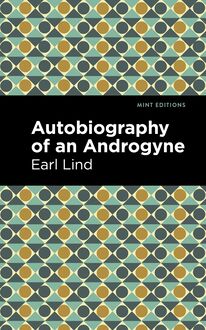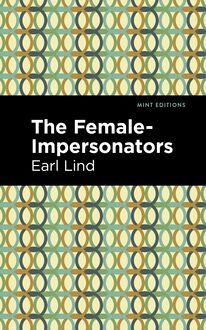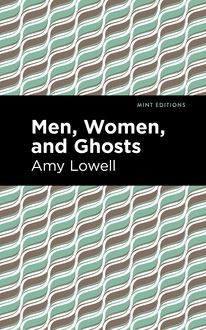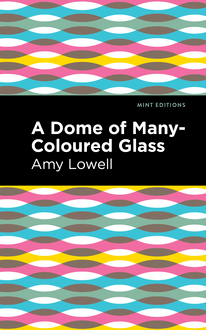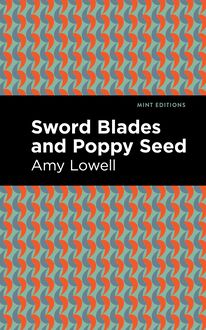-
 Univers
Univers
-
 Ebooks
Ebooks
-
 Livres audio
Livres audio
-
 Presse
Presse
-
 Podcasts
Podcasts
-
 BD
BD
-
 Documents
Documents
-
- Cours
- Révisions
- Ressources pédagogiques
- Sciences de l’éducation
- Manuels scolaires
- Langues
- Travaux de classe
- Annales de BEP
- Etudes supérieures
- Maternelle et primaire
- Fiches de lecture
- Orientation scolaire
- Méthodologie
- Corrigés de devoir
- Annales d’examens et concours
- Annales du bac
- Annales du brevet
- Rapports de stage
La lecture à portée de main
Vous pourrez modifier la taille du texte de cet ouvrage
Découvre YouScribe en t'inscrivant gratuitement
Je m'inscrisDécouvre YouScribe en t'inscrivant gratuitement
Je m'inscrisEn savoir plus
Vous pourrez modifier la taille du texte de cet ouvrage
En savoir plus

Description
Three Lives (1909) is a collection of novellas by Gertrude Stein. Characterized by its straightforward narrative style and disjointed prose, Three Lives proved a breakthrough for Stein, who had previously found it difficult bringing her works to publication. Each novella is set in Bridgepoint, a fictionalized version of Baltimore, where working class people of all races undergo the dignities and indignities of life in an industrialized nation. In “The Good Anna,” an immigrant housekeeper working in the home of a wealthy woman commands respect and order from all who cross her path. Caring only for her three small dogs, she does her best to forget a traumatic past. Having lost her mother in Germany at a young age, Anna moved to Bridgepoint with hope for a better future, but poor health and unlucky relationships haunt her throughout her life. “Melanctha” is the story of a young mixed-race woman who suffers from a lack of opportunity in a segregated city. Despite being honest and empathetic, she constantly finds herself betrayed and abandoned by those she trusts, and soon her pure heart and kind nature reach their limit. In “The Gentle Lana,” another German immigrant endures the banality and heartbreak of unhappily married life, raising a family and caring for a home without ever feeling fulfilled as an individual. With a beautifully designed cover and professionally typeset manuscript, this edition of Gertrude Stein’s Three Lives is a classic work of American literature reimagined for modern readers.
Sujets
Informations
| Publié par | Mint Editions |
| Date de parution | 21 mai 2021 |
| Nombre de lectures | 0 |
| EAN13 | 9781513287294 |
| Langue | English |
| Poids de l'ouvrage | 1 Mo |
Informations légales : prix de location à la page 0,0500€. Cette information est donnée uniquement à titre indicatif conformément à la législation en vigueur.
Extrait
Three Lives
Gertrude Stein
Three Lives was first published in 1905.
This edition published by Mint Editions 2021.
ISBN 9781513282275 | E-ISBN 9781513287294
Published by Mint Editions®
minteditionbooks.com
Publishing Director: Jennifer Newens
Design & Production: Rachel Lopez Metzger
Project Manager: Micaela Clark
Typesetting: Westchester Publishing Services
C ONTENTS T HE G OOD A NNA P ART I P ART II. T HE L IFE OF THE G OOD A NNA P ART III. T HE D EATH OF THE G OOD A NNA M ELANCTHA E ACH O NE AS S HE M AY T HE G ENTLE L ENA
THE GOOD ANNA
Part I
The tradesmen of Bridgepoint learned to dread the sound of “Miss Mathilda”, for with that name the good Anna always conquered.
The strictest of the one price stores found that they could give things for a little less, when the good Anna had fully said that “Miss Mathilda” could not pay so much and that she could buy it cheaper “by Lindheims.”
Lindheims was Anna’s favorite store, for there they had bargain days, when flour and sugar were sold for a quarter of a cent less for a pound, and there the heads of the departments were all her friends and always managed to give her the bargain prices, even on other days.
Anna led an arduous and troubled life.
Anna managed the whole little house for Miss Mathilda. It was a funny little house, one of a whole row of all the same kind that made a close pile like a row of dominoes that a child knocks over, for they were built along a street which at this point came down a steep hill. They were funny little houses, two stories high, with red brick fronts and long white steps.
This one little house was always very full with Miss Mathilda, an under servant, stray dogs and cats and Anna’s voice that scolded, managed, grumbled all day long.
“Sallie! can’t I leave you alone a minute but you must run to the door to see the butcher boy come down the street and there is Miss Mathilda calling for her shoes. Can I do everything while you go around always thinking about nothing at all? If I ain’t after you every minute you would be forgetting all, the time, and I take all this pains, and when you come to me you was as ragged as a buzzard and as dirty as a dog. Go and find Miss Mathilda her shoes where you put them this morning.”
“Peter!”,—her voice rose higher,—“Peter!”,—Peter was the youngest and the favorite dog,—“Peter, if you don’t leave Baby alone,”—Baby was an old, blind terrier that Anna had loved for many years,—“Peter if you don’t leave Baby alone, I take a rawhide to you, you bad dog.”
The good Anna had high ideals for canine chastity and discipline. The three regular dogs, the three that always lived with Anna, Peter and old Baby, and the fluffy little Rags, who was always jumping up into the air just to show that he was happy, together with the transients, the many stray ones that Anna always kept until she found them homes, were all under strict orders never to be bad one with the other.
A sad disgrace did once happen in the family. A little transient terrier for whom Anna had found a home suddenly produced a crop of pups. The new owners were certain that this Foxy had known no dog since she was in their care. The good Anna held to it stoutly that her Peter and her Rags were guiltless, and she made her statement with so much heat that Foxy’s owners were at last convinced that these results were due to their neglect.
“You bad dog,” Anna said to Peter that night, “you bad dog.”
“Peter was the father of those pups,” the good Anna explained to Miss Mathilda, “and they look just like him too, and poor little Foxy, they were so big that she could hardly have them, but Miss Mathilda, I would never let those people know that Peter was so bad.”
Periods of evil thinking came very regularly to Peter and to Rags and to the visitors within their gates. At such times Anna would be very busy and scold hard, and then too she always took great care to seclude the bad dogs from each other whenever she had to leave the house. Sometimes just to see how good it was that she had made them, Anna would leave the room a little while and leave them all together, and then she would suddenly come back. Back would slink all the wicked-minded dogs at the sound of her hand upon the knob, and then they would sit desolate in their corners like a lot of disappointed children whose stolen sugar has been taken from them.
Innocent blind old Baby was the only one who preserved the dignity becoming in a dog.
You see that Anna led an arduous and troubled life.
The good Anna was a small, spare, german woman, at this time about forty years of age. Her face was worn, her cheeks were thin, her mouth drawn and firm, and her light blue eyes were very bright. Sometimes they were full of lightning and sometimes full of humor, but they were always sharp and clear.
Her voice was a pleasant one, when she told the histories of bad Peter and of Baby and of little Rags. Her voice was a high and piercing one when she called to the teamsters and to the other wicked men, what she wanted that should come to them, when she saw them beat a horse or kick a dog. She did not belong to any society that could stop them and she told them so most frankly, but her strained voice and her glittering eyes, and her queer piercing german english first made them afraid and then ashamed. They all knew too, that all the policemen on the beat were her friends. These always respected and obeyed Miss Annie, as they called her, and promptly attended to all of her complaints.
For five years Anna managed the little house for Miss Mathilda. In these five years there were four different under servants.
The one that came first was a pretty, cheerful irish girl. Anna took her with a doubting mind. Lizzie was an obedient, happy servant, and Anna began to have a little faith. This was not for long. The pretty, cheerful Lizzie disappeared one day without her notice and with all her baggage and returned no more.
This pretty, cheerful Lizzie was succeeded by a melancholy Molly.
Molly was born in America, of german parents. All her people had been long dead or gone away. Molly had always been alone. She was a tall, dark, sallow, thin-haired creature, and she was always troubled with a cough, and she had a bad temper, and always said ugly dreadful swear words.
Anna found all this very hard to bear, but she kept Molly a long time out of kindness. The kitchen was constantly a battle-ground. Anna scolded and Molly swore strange oaths, and then Miss Mathilda would shut her door hard to show that she could hear it all.
At last Anna had to give it up. “Please Miss Mathilda won’t you speak to Molly,” Anna said, “I can’t do a thing with her. I scold her, and she don’t seem to hear and then she swears so that she scares me. She loves you Miss Mathilda, and you scold her please once.”
“But Anna,” cried poor Miss Mathilda, “I don’t want to,” and that large, cheerful, but faint hearted woman looked all aghast at such a prospect. “But you must, please Miss Mathilda!” Anna said.
Miss Mathilda never wanted to do any scolding. “But you must please Miss Mathilda,” Anna said.
Miss Mathilda every day put off the scolding, hoping always that Anna would learn to manage Molly better. It never did get better and at last Miss Mathilda saw that the scolding simply had to be.
It was agreed between the good Anna and her Miss Mathilda that Anna should be away when Molly would be scolded. The next evening that it was Anna’s evening out, Miss Mathilda faced her task and went down into the kitchen.
Molly was sitting in the little kitchen leaning her elbows on the table. She was a tall, thin, sallow girl, aged twenty-three, by nature slatternly and careless but trained by Anna into superficial neatness. Her drab striped cotton dress and gray black checked apron increased the length and sadness of her melancholy figure. “Oh, Lord!” groaned Miss Mathilda to herself as she approached her.
“Molly, I want to speak to you about your behaviour to Anna!”, here Molly dropped her head still lower on her arms and began to cry.
“Oh! Oh!” groaned Miss Mathilda.
“It’s all Miss Annie’s fault, all of it,” Molly said at last, in a trembling voice, “I do my best.”
“I know Anna is often hard to please,” began Miss Mathilda, with a twinge of mischief, and then she sobered herself to her task, “but you must remember, Molly, she means it for your good and she is really very kind to you.”
“I don’t want her kindness,” Molly cried, “I wish you would tell me what to do, Miss Mathilda, and then I would be all right. I hate Miss Annie.”
“This will never do Molly,” Miss Mathilda said sternly, in her deepest, firmest tones, “Anna is the head of the kitchen and you must either obey her or leave.”
“I don’t want to leave you,” whimpered melancholy Molly. “Well Molly then try and do better,” answered Miss Mathilda, keeping a good stern front, and backing quickly from the kitchen.
“Oh! Oh!” groaned Miss Mathilda, as she went back up the stairs.
Miss Mathilda’s attempt to make peace between the constantly contending women in the kitchen had no real effect. They were very soon as bitter as before.
At last it was decided that Molly was to go away. Molly went away to work in a factory in the town, and she went to live with an old woman in the slums, a very bad old woman Anna said.
Anna was never easy in her mind about the fate of Molly. Sometimes she would see or hear of her. Molly was not well, her cough was worse, and the old woman really was a bad one.
After a year of this unwholesome life, Molly was completely broken down. Anna then again took her in charge. She brought her from her work and from the woman where she lived, and put her in a hospital to stay till she was well. She found a place for her as nursemaid to a little girl out in the country, and Molly was at last established and content.
Molly had had, at first, no regular successor. In a few months it was going to be the summer and Miss Mathilda would be
-
 Univers
Univers
-
 Ebooks
Ebooks
-
 Livres audio
Livres audio
-
 Presse
Presse
-
 Podcasts
Podcasts
-
 BD
BD
-
 Documents
Documents
-
Jeunesse
-
Littérature
-
Ressources professionnelles
-
Santé et bien-être
-
Savoirs
-
Education
-
Loisirs et hobbies
-
Art, musique et cinéma
-
Actualité et débat de société
-
Jeunesse
-
Littérature
-
Ressources professionnelles
-
Santé et bien-être
-
Savoirs
-
Education
-
Loisirs et hobbies
-
Art, musique et cinéma
-
Actualité et débat de société
-
Actualités
-
Lifestyle
-
Presse jeunesse
-
Presse professionnelle
-
Pratique
-
Presse sportive
-
Presse internationale
-
Culture & Médias
-
Action et Aventures
-
Science-fiction et Fantasy
-
Société
-
Jeunesse
-
Littérature
-
Ressources professionnelles
-
Santé et bien-être
-
Savoirs
-
Education
-
Loisirs et hobbies
-
Art, musique et cinéma
-
Actualité et débat de société
- Cours
- Révisions
- Ressources pédagogiques
- Sciences de l’éducation
- Manuels scolaires
- Langues
- Travaux de classe
- Annales de BEP
- Etudes supérieures
- Maternelle et primaire
- Fiches de lecture
- Orientation scolaire
- Méthodologie
- Corrigés de devoir
- Annales d’examens et concours
- Annales du bac
- Annales du brevet
- Rapports de stage


